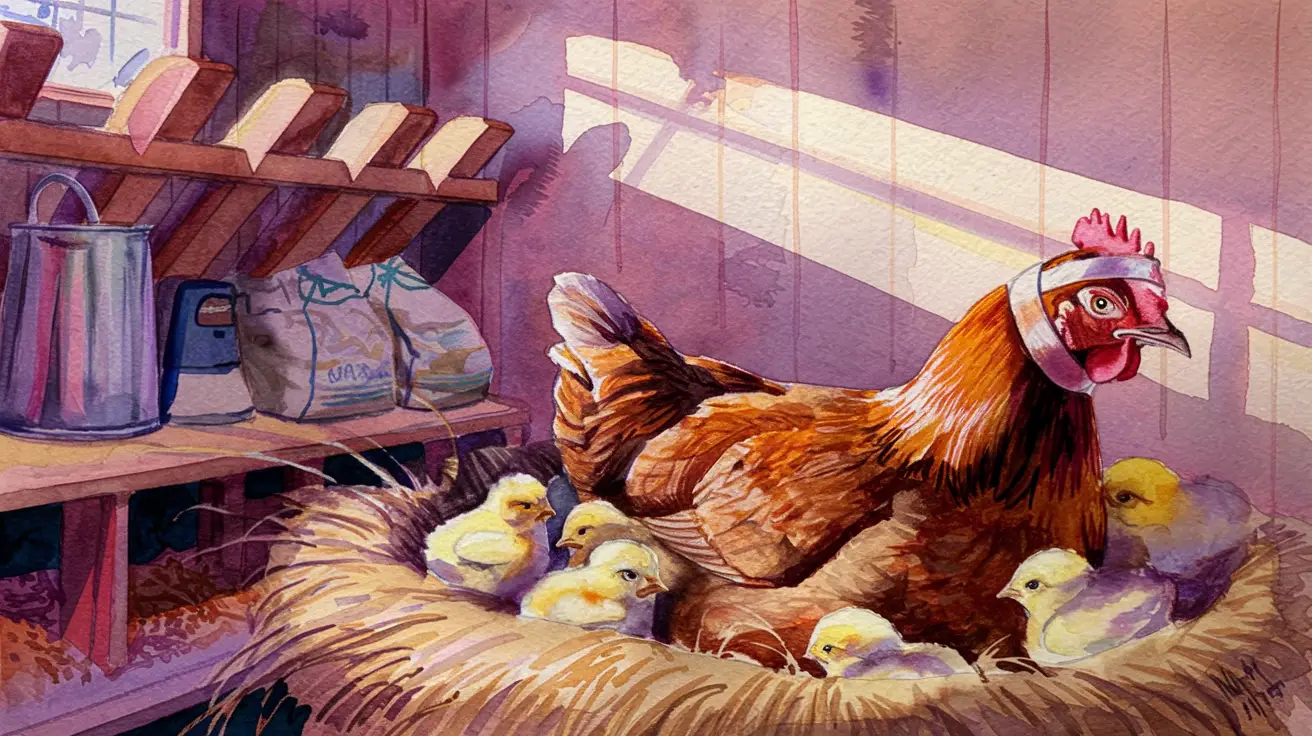Chickens are generally hardy critters, but they do have their share of potential health hiccups. Keeping your flock healthy is a mix of preventative care and prompt action at the first sign of trouble. The old saying “an ounce of prevention is worth a pound of cure” could have been written about poultry – many chicken illnesses are easier to prevent than to treat (and often, by the time a chicken looks sick, it’s very sick).
Start with disease prevention. Buy chicks from reputable hatcheries or breeders, and vaccinate when recommended. One of the most important vaccines is for Marek’s Disease, a highly contagious virus that causes paralysis and death in chickens
Most hatcheries will offer to vaccinate day-old chicks for Marek’s (and it’s wise to say yes – it’s a cheap insurance policy). The vaccine, given at the hatchery on the chick’s first day of life, is highly effective at protecting your birds
There’s no cure for Marek’s, so vaccination and bio-security are the best defense. Some hatcheries also vaccinate for coccidiosis, a parasitic disease, or you can use medicated chick starter feed to help chicks build immunity.mannapro.com.
Practice good bio-security:
a fancy term for “don’t track germs into your coop.” Wash hands and change boots after visiting other farms or feed stores (diseases like avian influenza and Newcastle can hitchhike on your shoes). If you introduce new birds to your flock, quarantine them for a few weeks first to ensure they’re not sneezing, sniffling, or harboring unseen illnesses. It’s also smart to keep wild birds out of your chicken run – wild birds can carry mites or diseases that your chickens would rather not catch.
Common chicken diseases:
to be aware of include respiratory infections like infectious bronchitis, Mycoplasma (chronic respiratory disease), and avian influenza, as well as others like coccidiosis, fowl pox, and internal parasites. Parasites deserve a special mention: chickens can get mites, lice, ticks, and worms
Regularly check under your hens’ feathers (especially around the vent area) for tiny crawling critters or eggs, and treat promptly if found. Providing a dust bath area (a shallow box or pit filled with sand/soil and a bit of wood ash or diatomaceous earth) lets chickens clean themselves and ward off external parasites in the most adorable spa treatment you’ll ever witness.merckvetmanual.com.
Some health practices might even be required by law or needed for showing chickens. For example, poultry exhibitions often require testing for Salmonella pullorum disease or avian flu. For the average backyard keeper, it’s more about sensible habits: keep the coop dry and clean to prevent bacterial growth, ensure good ventilation (but no drafts directly on roosting chickens), and don’t overcrowd the birds – crowding stresses them and can lead to disease outbreaks.
If despite your best efforts, a chicken falls ill, have a plan. Locate a veterinarian or an experienced chicken-keeping mentor who can help. Not all vets treat chickens (surprising, I know – apparently four-legged pets hog all the vet spotlight), so find one in advance. Many illnesses can be treated if caught early, but chickens are experts at hiding sickness (a survival instinct to avoid appearing weak to predators). By the time a hen looks lethargic or stops eating, she may be quite ill. Isolate any sick chicken from the flock to prevent spread. Some issues, like an impacted crop or egg binding, you can sometimes handle with home remedies after doing research; more serious diseases may need veterinary meds or, in worst cases, humane culling to protect the rest of the flock.
The fix is simple:
Protect yourself.
While most chicken diseases don’t transfer to humans, some can. Salmonella is the big one – it can live in poultry droppings and on feathers. Backyard flock–related Salmonella outbreaks happen every year in the US cdc.gov. Wash your hands thoroughly after handling chickens or eggs, and don’t snuggle your hens and then lick your fingers (common sense, right?). Teach children to wash up after visiting the coop, too. With good hygiene, the risk is minimal and certainly shouldn’t deter you from enjoying your birds.
In short, healthy chickens need a clean environment, good food and water, and watchful eyes. Stick to a regular cleaning schedule and observe your birds often – you’ll learn each chicken’s quirks and spot when “Cluck Norris” isn’t acting like himself. A little preventive care goes a long way; as experts note, treating a flock once disease hits can be extremely challenging (and expensive), so focus on keeping germs out in the first place mannapro.com
Your reward will be a vibrant flock that lives long, lays well, and only sees the vet for the occasional check-up or manicure.
